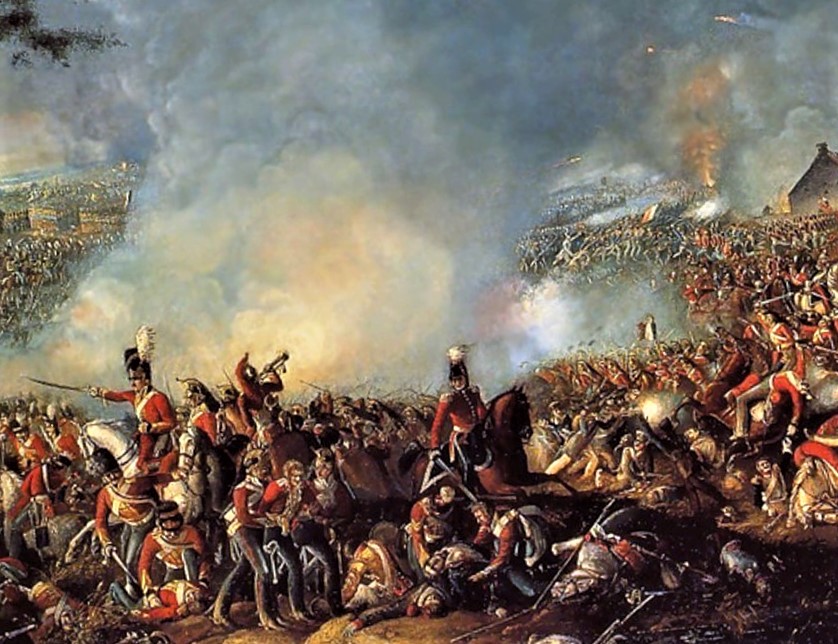
When Tim Berners-Lee proposed a new information management system (the World Wide Web/www) at CERN in 1989, it was hard to imagine the impact it would have, connecting the world and sharing information in ways never before possible. did not
1. Battle of Hastings in England in 1066:
Photo: Collected
October 14, 1066. At the Battle of Hastings, King Harold II of England (c.1022–66) was defeated by the Norman forces of William the Conqueror (c.1028–87). At the end of a bloody, all-day battle, Harold was dead and his army destroyed.
He was the last Anglo-Saxon king of England, as the battle changed the course of history and established the Normans as rulers of England, resulting in a significant cultural transformation.
2. Magna Carta “Charter of English Independence” – 1215
Photo: Collected
The Magna Carta (English Great Charter), the Charter of English Independence, was issued by King John on June 15, 1215, under threat of civil war, and reissued with amendments in 1216, 1217, and 1225. A document of freedom governed by law and “free men,” the Magna Carta provided the basis for individual rights in Anglo-American jurisprudence.
Although more of a reactionary than a progressive document in its time, Magna Carta was seen as the foundation for the development of a democratic England for generations to come.
3. Plague (Black Death) – 1347
Photo: Collected
The Plague (Black Death) was a devastating global epidemic of bubonic plague that reached Europe in October 1347, when 12 ships from the Black Sea arrived at the Sicilian port of Misina.
The crowd at the docks was met with a terrible surprise; Most of the sailors on board had died and those who were still alive were seriously ill and oozing blood and pus in black boils.
Sicilian authorities hastily ordered the fleet of “death ships” out of port, but by then it was too late: over the next five years the Black Death claimed . Which was about a third of the continent’s population.
4. The Wars of the Rose – 1455
Photo: Collected
The Wars of the Roses were a series of bloody civil wars between two rival royal families for the throne of England. The House of York and the House of Lancaster were both members of the royal Plantagenet family.
The Wars of the Roses, between 1455 and 1485, earned the flower its name because the white rose was the badge of York and the red rose was the badge of the Lancastrians. After 30 years of political manipulation that resulted in horrific killings and brief peace, the war ended and a new dynasty emerged.
5. William Shakespeare was born – 1564
Photo: Collected
According to English legend, the great English playwright and poet William Shakespeare was born on April 15, 1564 in Stratford-on-Avon. The exact day of his birth is impossible to ascertain, but church records show that he was baptized on 26 April and that three days was the customary time to wait before baptizing a newborn.
The definitive date of Shakespeare’s death is April 2, 1616. He was 52 years old. He retired from Stratford three years before his death.
6. Guy Fawkes and the Invention of the Gunpowder Plot – 1605
Photo: Collected
The Catholic conspirators used a special type of gunpowder in an attempt to assassinate King James I. Their gunpowder plot would have succeeded had it not been forewarned by an anonymous letter.
Today the plot is remembered through the rhyme ‘Mone Rekho, Mone Rekho, 5th November’ and even today the day is commemorated by lighting bonfires and burning firecrackers.
7. Battle of Waterloo – 1815
Photo: Collected
The Battle of Waterloo, held in Belgium on 1 June 1815, marked the final defeat of Napoleon Bonaparte, who had conquered much of Europe in the early 19th century.
Through a series of wars, he expanded his empire across Western and Central Europe. The Battle of Waterloo, in which Napoleon’s forces were defeated by the British and Prussians and which ended his reign and the dominance of France in Europe.
8. Queen Victoria becomes Queen – 1837
Photo: Collected
A comparative analysis of the period of English rule shows that few English kings or queens defined their own period, but the Victorian period is known to almost all of us. Queen Victoria Queen for more than 60 years, Victoria’s reign brought great change to Britain.
The Industrial Revolution, cultural and scientific discoveries all helped change the way people live. Many empires around the world were directly linked to the growth of the British Empire. Queen Victoria occupied a great place in the hearts of the people by her rule.
9. V-E DAY (Victory in Europe Day) marks the end of World War II – 1949
Photo: Collected
Two, two world wars shattered the peace of Europe. Britain suffered heavy casualties, air raids, rationing and other hardships during the long years of the war.
When Germany surrendered unconditionally to the Allies in May 1945, a wave of jubilation swept across the country as crowds took to the streets to celebrate. And their joyous celebration is marked in history by V-E DAY (Victory in Europe Day).
10. Tim Berners-Lee Invert the World Wide Web (Internet) – 1989
Photo: Collected
Few inventions have changed our lives as much as the Internet. When Tim Berners-Lee proposed a new information management system (the World Wide Web/www) at CERN in 1989, it was hard to imagine the impact it would have, connecting the world and sharing information in ways never before possible. did not

Leave a Reply
You must be logged in to post a comment.